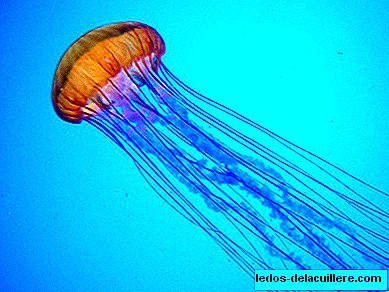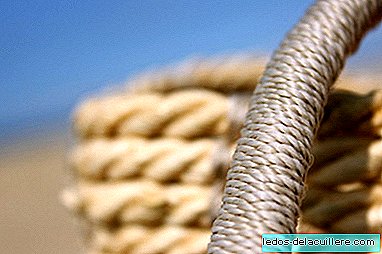
Two days ago a plague of jellyfish forced to close several affected areas in Algeciras, in fact in recent years it is a fact that is repeated: these beautiful animals arrive massively to the coasts. They are pretty but rubbing with its tentacles will cause itching, redness and swelling of the skin, Would you know what to do to relieve the symptoms once you have come into contact with them?
The point is that the environmental conditions that kept the jellyfish away from the coast have varied for many reasons that I am not going to detail now: the population of some of its natural predators (turtles, tunas, etc.) is decreasing, and the drought cause many rivers to reach the sea with little fresh water (this would form a barrier that keeps them 'at bay').
For us the most dangerous and annoying species is the Portuguese caravel, although in Australia some can cause death. Last year pediatric associations already advised us that in case of contact, it is advisable to leave the sea and seek help. There seems to be a chance of cramping that can cause drowning, and (less frequently) anaphylactic shock. Although jellyfish do not want to bother anyone, they cannot prevent their body from coming into contact with that of the bathers, if the latter do not take precautions. The discomfort they cause and the subsequent hives that develop, are due to the fact that thousands of very small stingers called nematocysts remain in our skin. These will continue to release poison inside the body.
Mild allergic reactions sometimes occur, so it is important to know how to avoid contact, and also how to act
Tips (given from 'In Family') so that jellyfish do not bite us:
First of all if you let us know that these animals have reached our usual beach, We will heed the recommendations and we will not enter the water. Attention to the indications of first responders and flags: the red flag does not always mean that the water is in poor condition, but can warn of other dangers; apart from the fact that there are already beaches that place white flags with the corresponding code.
The sunscreen also has the ability to isolate the body surface from other substances.
It is recommended that those who remain for a long time in the water wear protective clothing (glasses, wetsuits, lycra ...).
It is important when there is proliferation of these animals do not even get on the shore (there may be pieces of tentacles because it is the breaking area). And we should all be aware that dead jellyfish (or their fragments) are not touched under any circumstances (until after 24 hours of being dry, the stinging power persists.
If we see jellyfish and have not alerted us, we will notify the nearest aid station so that they have proof and keep the rest of bathers informed
What to do if they bite us?
In Kids Health they give us some very valid recommendations (surely some of them you will have already heard):
The affected area should be rinse with sea water (never sweet because it could make symptoms worse).
Although the itching incites scratching the affected area, it should be avoid rubbing it With your hands or towel.
We will feel relief from apply cold without rubbing for 15 minutes: We can ask for ice, chop it and wrap it in a bag before applying it. This applies to the species of our coasts, since in other places what calms is the heat.
The remains of jellyfish can be remove scraping with a plastic card (library card, credit card ...) or with tweezers.
Monitor the wounds so that they do not become infected and then consult the doctor in case we should take painkillers, are control measures that we will also consider.
In older people, children, allergic or with skin problems, we must observe the reactions. And in any case if the burning is accompanied by vomiting, headache, discomfort or nausea, we will take the person to the hospital without delay. When unexpected reactions occur we will keep our heads cool to be able to accurately describe the appearance of the animal with which we have come in contact
The most common species of jellyfish we will find are small, and although we all fear the cramp it feels to meet them, we should not be scared, just haveprudence and common sense. I hope these gelatinous beings do not spoil your beach vacation.












